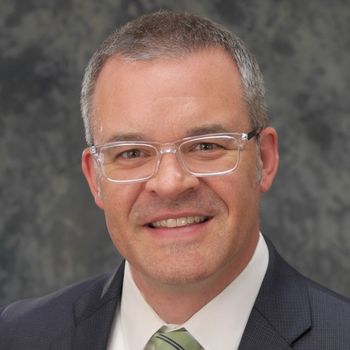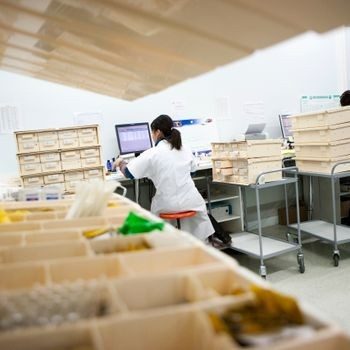Teaming Up To Improve Healthcare Journey
A partnership between Philips and Medtronic looks to streamline and optimize the management of lung nodule patients.
February 8, 2018 - For some, lung cancer is detected following a routine screening. For others, it’s the furthest thing on their mind — an experience LeAnne Bonser knows well.
“I had just run a marathon, I ate healthy, and I never smoked,” says LeAnne, a 40-year old mother from Virginia.
After coughing up blood, she scheduled an appointment and doctors ran a few tests. Then came the news no one saw coming.
“They told me I had lung cancer,” she recalls. “I was shocked.”
Thankfully, it was detected early and treated before it progressed.
LeAnne’s nodule was found incidentally. In other words, her cancer was detected almost by accident. And for those in similar positions — recent estimates suggest that as many as 1.5 million Americans will have a solitary pulmonary nodule identified each year1— it can be a confusing journey for both the patient and the clinician.
A Need for Better Care Management
An improved journey is at the heart of a new partnership between Medtronic and Philips. Announced in January, the two companies are teaming up to improve care and outcomes for lung nodule patients.
Today, lung cancer is the number one cancer killer in the world, accounting for more deaths than breast, colon, and prostate cancers combined2 In its early stages, lung cancer presents few, if any, symptoms, but when found early, nodules can be closely monitored for growth.
But once a nodule is discovered, a lack of infrastructure, care coordination, and capacity to manage them in a timely manner may lead to delays in diagnosis and treatment.
Patients with incidental nodules are a critical population. Today, incidental nodules have approximately a 26 percent malignancy rate, risk stratified, compared to approximately just two percent within the screening population3, 4. Of those nodules, only approximately 30 percent are followed and managed properly.5
“Lung cancer rates haven’t changed much over the past three decades. The current management of lung nodule tracking is a very manual process, one that includes spreadsheets or post-it notes, or no active management at all,” says Matt Anderson, Vice President and General Manager of Lung Health at Medtronic.
Even patients desire a more streamlined process. A recent study, which surveyed hundreds of cancer patients, found that services related to “convenience and coordination” ranked as their highest needs.6
It’s time we think differently about how we’re going to tackle this disease and bring lung healthcare into the 21st century.
Matt Anderson Vice President and General Manager of Lung Health at Medtronic
Teaming Up to Make a Difference
Meeting those needs is why the two companies are teaming up. Together, they have developed the LungGPS™ Patient Management Platform, a data management system designed to streamline the management of lung nodule patients, from identification through diagnosis, treatment, and long-term survivorship.
“It’s time we think differently about how we’re going to tackle this disease and bring lung healthcare into the twenty-first century,” says Anderson.
Backed by Philips’ data software experience, and the lung care continuum and technology expertise from Medtronic, the combined effort provides solutions that focus on integrating hospital data, patient management, and clinical workflows. The LungGPS™ platform is designed to make it easier for clinicians to identify and manage lung patients within a complex healthcare system.
“We recognize that multidisciplinary teams allow for optimal care,” says thoracic surgeon and medical director for Inova Health System, Sandeep Khandhar. “A coordinated model brings together different specialties to provide the best possible care for the patient.”
Detecting and treating lung cancer as early as possible not only improves outcomes, but is less of an economic burden. Treatment of late-stage nodules is 300 percent costlier than it is for cancers caught at an earlier stage.7
“We’re excited,” says Brent Berthy, Head of Oncology Solutions at Philips. “We look forward to expanded possibilities through our new collaboration in interventional oncology with Medtronic. Developing technological solutions that enable clinicians to do this quickly, efficiently, and consistently continues to be our focus.”
References
1Gould MK, et al. Am J Respir Crit Care Med. 2015;192:1208-1214
2Siegel et al. CA Cancer J Clin. 2017;67:7-30
3Gildea et al. (2017). ClinicoEconomics and Outcomes Research. 9: 261:269.
4Tanner, MD, MSCR, et al. Management of Pulmonary Nodules by Community Pulmonologists: A Multicenter Observational Study; 201
5Blagev, MD, et al. Follow-up of Incidental Pulmonary Nodules and the Radiology Report; J Am Coll Radiol 2014;11:378-383
7"What Do Cancer Patient Care About Most?" The Advisory Board Company: Oncology Roundtable


